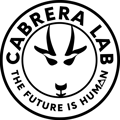System Leadership, Organization, System Thinking
Adapted from the article originally written by Tomas Abe
for the Cabrera's Cornell University, System Thinking in Public Affairs Course
SUMMARY
Systems Thinking is the new hope for wicked problems (e.g. climate change, destruction of ecosystems, growing scarcity of water, youth unemployment). By offering a common language across methods, disciplines, and contexts (facilitating interdisciplinarity), it lays out the groundwork for collective effort.
System Leadership, the roots of which may be found among the ideas brought about by the fourth wave of Systems Thinking (2000s), can be understood as the capacity to foster the collective leadership necessary to tackle the complex problems of a VUCA world. As any other evolutionary process, this search for a new type of leadership implies constant feedback loop, and adaptation. Therefore, it is a concept still under construction.
In a seminal paper (The Dawn of System Leadership), Senge, Kania and Hamilton pointed out three core capabilities that system leaders should develop in order to foster collective leadership: 1. ability to see the larger system (by not focusing attention on the parts of the system most visible from their own vantage point, organizations can then work together for the health of the whole system); 2. fostering reflection (thinking about our own thinking and appreciating how our mental models may limit us); and 3. shifting the collective focus from reactive problem solving to co-creating the future (not just building inspiring visions but facing difficult truths about the present reality and learning how to use the tension between vision and reality to inspire truly new approaches).

System Leadership in action that can be seen, for example, in the collective effort of a non-profit organization called The Sustainable Food Lab to create the food system of the future by addressing large scale problems from climate change to farmer livelihoods. Systems Leadership is at the core of what they do - the idea that the big-picture context of landscapes, markets and the diverse perspectives of all the players in a food system are essential for catalyzing change. The cornerstones of their approach are: harnessing a long-view and embracing the complexity of the whole system to foster unlikely partnerships; creating a “kitchen table” culture where stakeholders can roll up their sleeves, speak candidly and learn from each other’s perspectives; and, designing and managing supply chain initiatives and collaborations among food companies, NGO’s, farmer organizations and research institutions.
Cabrera D. and Cabrera L. present System Leadership as four natural functions that characterize organizations as Complex Adaptive Systems: Vision (desired future state goal), Mission (repeatable actions about the vision), Capacity that provide readiness to the mission), and Learning (continuous improvement of systems of capacity based on feedback from the external environment). By focusing in these four simple rules (VMCL), system leaders become able to promote changes in shared mental models (culture) and organizational behaviors, that lead to organizations achieving their vision with maximal efficiency and success.

Figure 2: From Individual system thinking to organizational vision
One strength worth mentioning is its capacity to shed light on a concrete pathway to foster collective leadership, for example, by explicating the essential competencies to tackle systemic challenges that go beyond the reach of existing institutions and their hierarchical authority structures. On the other hand, system leadership may not work very well in moments of crises, for example when a business is in emergency mode, and hard decisions need to be made quickly.
SOURCES & FURTHER READING
- Burke C., Macdonald I., Stewart K. (2018). System Leadership: Creating Positive Organizations.
- Cabrera D., Cabrera L. (2018). Flock not Clock.
- Cabrera, D., Cabrera, L. (2015). Systems Thinking Made Simple: New Hope for Solving Wicked Problems.
- Cabrera D., Cabrera L. (2019). What Is Systems Thinking?
- Senge P., Hamilton H., Kania J. (2019). The Dawn of System Leadership
- Senge, P. (1990). The Fifth Discipline: The Art and Practice of The Learning Organization.
- Stanford Social Innovation Review, www.ssireview.org. 8. Sustainable Food Lab, www.sustainablefoodlab.org.
- The Society for Organizational Learning North America, www.solonline.org.
